Books written by Terence Tao.
In 2006 Tao received the Fields Medal "For his contributions to partial differential equations, combinatorics, harmonic analysis and additive number theory."
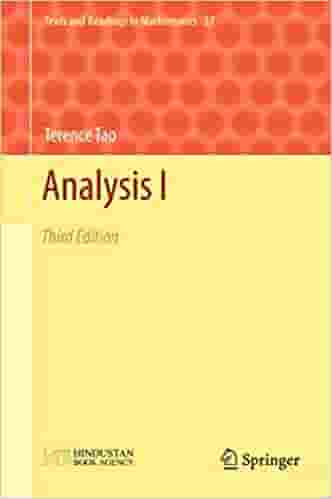
Analysis I
This is part one of a two-volume book on real analysis and is intended for senior undergraduate students of mathematics who have already been exposed to calculus. The emphasis is on rigour and foundations of analysis. Beginning with the construction of the number systems and set theory, the book discusses the basics of analysis - limits, series, continuity, differentiation, Riemann integration.
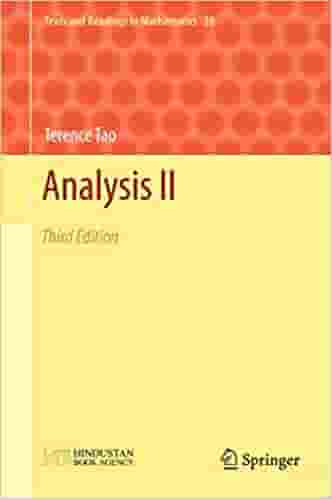
Analysis II
This is part two of a two-volume book on real analysis and is intended for senior undergraduate students of mathematics who have already been exposed to calculus. The emphasis is on rigour and foundations of analysis. Beginning with the construction of the number systems and set theory, the book discusses the basics of analysis - limits, series, continuity, differentiation, Riemann integration.
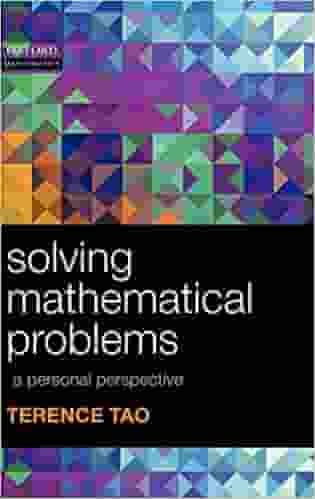
Solving Mathematical Problems: A Personal Perspective
Authored by a leading name in mathematics, this engaging and clearly presented text leads the reader through the various tactics involved in solving mathematical problems at the Mathematical Olympiad level. Covering number theory, algebra, analysis, Euclidean geometry, and analytic geometry, Solving Mathematical Problems includes numerous exercises and model solutions throughout.
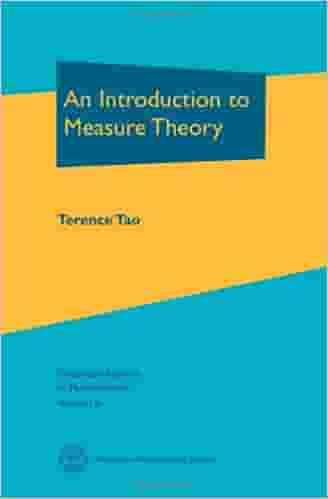
An Introduction to Measure Theory
This is a graduate text introducing the fundamentals of measure theory and integration theory, which is the foundation of modern real analysis. The text focuses first on the concrete setting of Lebesgue measure and the Lebesgue integral (which in turn is motivated by the more classical concepts of Jordan measure and the Riemann integral), before moving on to abstract measure and integration theory, including the standard convergence theorems, Fubini's theorem, and the Carathéodory extension theorem.
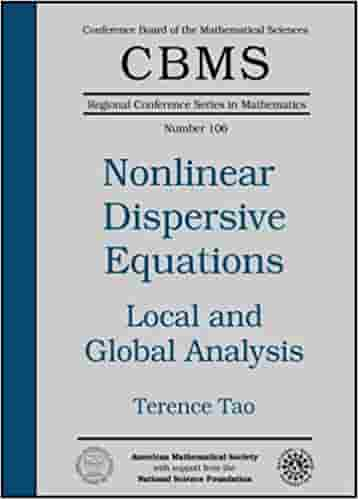
Nonlinear Dispersive Equations: Local and Global Analysis
Among nonlinear PDEs, dispersive and wave equations form an important class of equations. These include the nonlinear Schrödinger equation, the nonlinear wave equation, the Korteweg de Vries equation, and the wave maps equation. This book is an introduction to the methods and results used in the modern analysis (both locally and globally in time) of the Cauchy problem for such equations.

Higher Order Fourier Analysis
Traditional Fourier analysis, which has been remarkably effective in many contexts, uses linear phase functions to study functions. Some questions, such as problems involving arithmetic progressions, naturally lead to the use of quadratic or higher order phases. Higher order Fourier analysis is a subject that has become very active only recently. Gowers, in groundbreaking work, developed many of the basic concepts of this theory in order to give a new, quantitative proof of Szemerédi's theorem on arithmetic progressions.
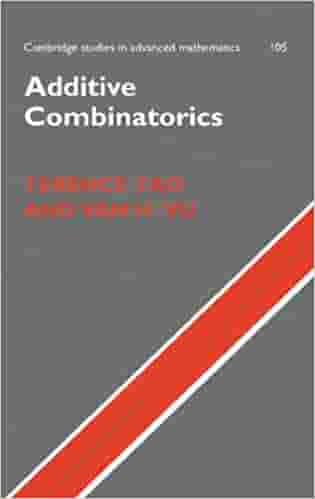
Additive Combinatorics
Additive combinatorics is the theory of counting additive structures in sets. This theory has seen exciting developments and dramatic changes in direction in recent years thanks to its connections with areas such as number theory, ergodic theory and graph theory.
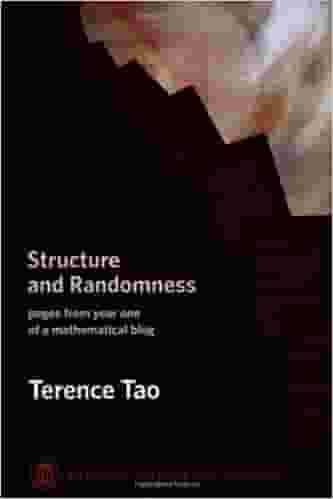
Structure and Randomness: Pages from Year One of a Mathematical Blog
There are many bits and pieces of folklore in mathematics that are passed down from advisor to student, or from collaborator to collaborator, but which are too fuzzy and non-rigorous to be discussed in the formal literature. Traditionally, it was a matter of luck and location as to who learned such folklore mathematics. But today, such bits and pieces can be communicated effectively and efficiently via the semiformal medium of research blogging.
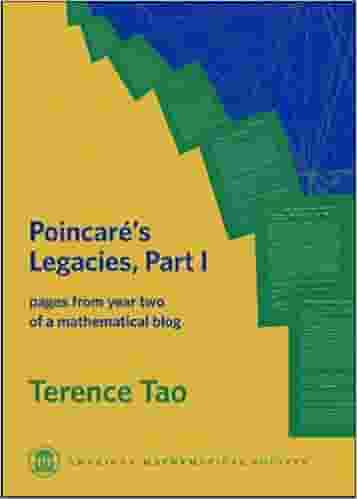
Poincare's Legacies, Part I: Pages From Year Two of a Mathematical Blog
There are many bits and pieces of folklore in mathematics that are passed down from advisor to student, or from collaborator to collaborator, but which are too fuzzy and non-rigorous to be discussed in the formal literature. Traditionally, it was a matter of luck and location as to who learned such folklore mathematics. But today, such bits and pieces can be communicated effectively and efficiently via the semiformal medium of research blogging.
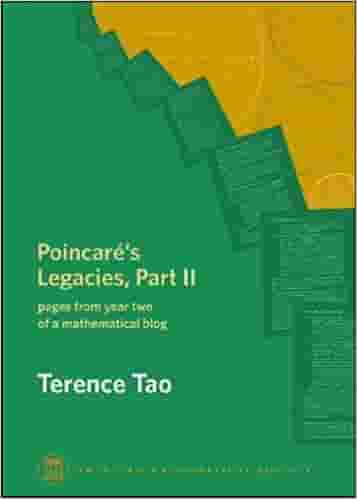
Poincare's Legacies, Part II: Pages From Year Two of a Mathematical Blog
There are many bits and pieces of folklore in mathematics that are passed down from advisor to student, or from collaborator to collaborator, but which are too fuzzy and non-rigorous to be discussed in the formal literature. Traditionally, it was a matter of luck and location as to who learned such folklore mathematics. But today, such bits and pieces can be communicated effectively and efficiently via the semiformal medium of research blogging.
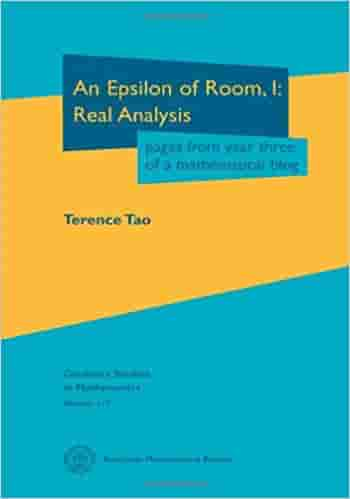
An Epsilon of Room Real Analysis, Part I: Pages from Year Three of a Mathematical Blog
There are many bits and pieces of folklore in mathematics that are passed down from advisor to student, or from collaborator to collaborator, but which are too fuzzy and non-rigorous to be discussed in the formal literature. Traditionally, it was a matter of luck and location as to who learned such folklore mathematics. But today, such bits and pieces can be communicated effectively and efficiently via the semiformal medium of research blogging.
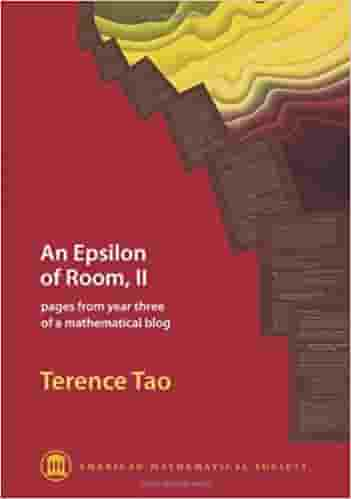
An Epsilon of Room, Part II: Pages From Year Three of a Mathematical Blog
There are many bits and pieces of folklore in mathematics that are passed down from advisor to student, or from collaborator to collaborator, but which are too fuzzy and non-rigorous to be discussed in the formal literature. Traditionally, it was a matter of luck and location as to who learned such folklore mathematics. But today, such bits and pieces can be communicated effectively and efficiently via the semiformal medium of research blogging.
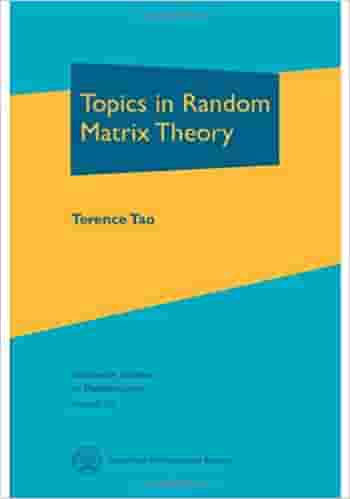
Topics in Random Matrix Theory
The text is largely self-contained and starts with a review of relevant aspects of probability theory and linear algebra. With over 200 exercises, the book is suitable as an introductory text for beginning graduate students seeking to enter the field.
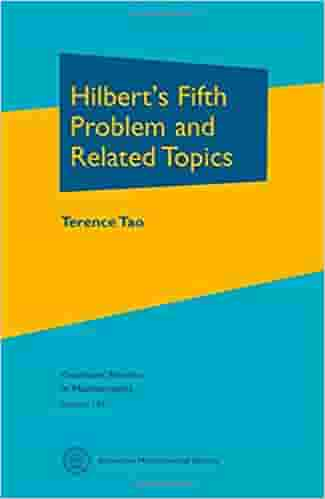
Hilbert's Fifth Problem and Related Topics
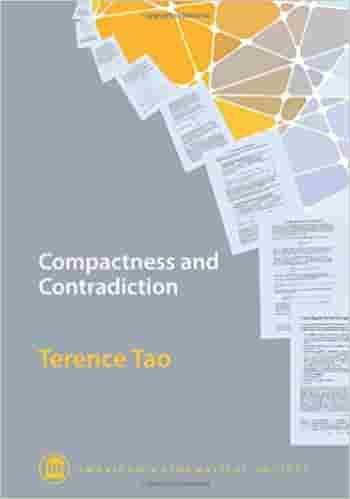
Compactness and Contradiction

Expansion in Finite Simple Groups of Lie Type
Expander graphs are an important tool in theoretical computer science, geometric group theory, probability, and number theory. Furthermore, the techniques used to rigorously establish the expansion property of a graph draw from such diverse areas of mathematics as representation theory, algebraic geometry, and arithmetic combinatorics.